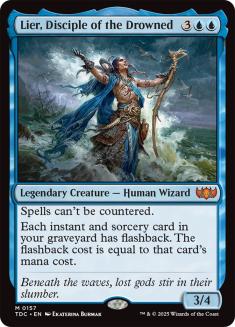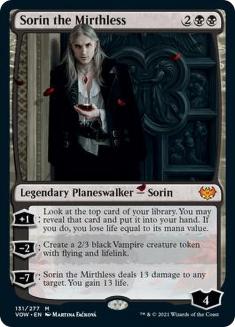The SCG Invitational has rejuvenated the grinder class with just a single event. I will not be able to attend the events in Las Vegas this month, but I did spend a good portion of the car ride back home looking for events that were in driving distance. There’s no better show in town than the SCG Tour and the events that fall under that umbrella, with this past event being no different. It has the prizes worth traveling for, but more importantly the reunion of friends who have not seen each other in a very long time.
I picked up my boy Eli Kassis from the airport Thursday night, then joined up with my other Team BCW colleagues the following morning for breakfast. This could have easily been the highlight for me, as I was not expecting to do well in the event itself. Unfortunately, I cannot commit to proper testing as I used to due to family and career obligations. For this event, it was even more difficult, since paper Magic has been nearly impossible for most of us. I wrote about the decks I planned on playing a week before the SCG Invitational and knew my lack of games played would result in this event being more of a hang-out. To the surprise of me and everyone I know (even my boss), I was able to navigate the Swiss rounds with a final record of 12-3-1 to my sixth SCG Invitational Top 8.
The Modern portion is what led me to make the magic happen, with a smooth record of 8-0. Azorius Control felt nearly perfect, even with my lack of experience with many of the cards in my own deck. It turns out the core of the deck, or Modern control in general, has not differed much over the last few metagames. The disruption has become much stronger, and the deck has evolved to include Chalice of the Void for a shutout opportunity, while the rest of the format has not significantly spiked in power level. I beat most of the popular archetypes, especially the mirror, allowing me to achieve a tournament finish that I did not think was possible.
My Dimir Control performance in Standard was mediocre, which did not bode well for my championship aspirations. I defeated my quarterfinals opponent, who got me earlier in the tournament, but lost in a painful Game 5 against the mirror where I dug nineteen cards deep for a removal spell and whiffed. Even though this was a tough way to end the tournament, I far exceeded expectations, and now all I can think about is how Innistrad: Crimson Vow will strengthen my favorite Standard archetype.
Dimir Control had a lot going for it with Lier, Disciple of the Drowned. Even with Lier leading the charge in a traditional control deck, Izzet Epiphany incorporated it better with a much stronger end-game. Having Alrund’s Epiphany to punish opponents for tapping out is a game-changer, one luxury that I was not able to enjoy in this event. I won all of my games against Mono-Green Aggro❄ decisively, easily navigating through them for a 4-0 record with Dimir Control. When I ran into opposing Lier decks, especially Izzet-based ones, my record ended at 0-3-1. The one draw should have been a win but resolved as a draw because of a missed learn on my side.
That pitiful record in the blue mirrors was not all because of my inexperience; Dimir Control needs some help to compete, and I’m hoping that Innistrad: Crimson Vow can throw us a lifeline.
A strong control card can often be a double-edged sword. Since the best deck is Izzet Epiphany by a strong margin, more powerful blue cards won’t help those of us who don’t want to play that archetype. With the event taking much of my free time, I did not notice the release of Sorin the Mirthless until the tournament began. It did not receive much hype on social media, which is shocking to me. I’ve wanted Sorin back for quite some time, and it even exceeds what I have become accustomed to after using Sorin’s predecessors.
Sorin has the perfect mana cost for a control planeswalker, fitting into the traditional four-mana slot. When decent five-mana planeswalkers fit into control decks, they typically follow the “removal, card draw, and game-ending ultimate” model. This leads them to become a one- or two-of, even if their abilities are strong within this design construct. When four-mana control planeswalkers hit the preview realm, players judge them for their ability to defend themselves and provide card advantage. Sorin does both of those things extremely well and has a starting loyalty of four that’s much higher than I would have guessed in the dark.
[+1]: Look at the top card of your library. You may reveal that card and put it into your hand. If you do, you lose life equal to its mana value.
The first ability of Sorin is the card advantage outlet, allowing the user to look at the top card and then choose to reveal it and put it in their hand. If they do put it in their hand, the life loss is equal to the mana value. This way, if the card has a high mana value, there’s always the option to leave it there and preserve the life total.
I absolutely love this design, as it’s nearly a perfect draw mechanic from a planeswalker that’s balanced. The moment this hits the battlefield, it can draw a card if there’s eminent danger on the other side. Producing a blocker against a deck that clearly has a removal spell and can attack to remove it does not feel great. The other versions of Sorin often had this issue, but here we see that the casting turn can be meaningful when ticking the loyalty up.
[-2]: Create a 2/3 black Vampire creature token with flying and lifelink.
The second ability spawns the creature in question, and it’s much better than what the older planeswalkers could do. Sorin produces a 2/3 black Vampire token with flying and lifelink, which is amazing. I’m used to a 2/2 with flying that has nothing else going for it; however, this upcoming Sorin gives us an extra toughness and lifelink.
I couldn’t believe that the token this planeswalker produces gains life, an ability that control players never take for granted. It took a while for the competitive community to respect lifegain as a vital piece for control’s success, but not me. Even in my earliest control decks, I was cycling Renewed Faith, including in Azorius Tron back in the day. The Vampire token from Sorin is a game-changer for black-based control in Standard, even though it removes loyalty to use. With that token mitigating the loss of life from the plus ability that draws cards, Sorin has the inner workings to become a staple in Standard control decks.
[-7]: Sorin the Mirthless deals 13 damage to any target. You gain 13 life.
The ultimate ability of a planeswalker rarely makes or breaks its viability. With Sorin, we get the bonus of a thirteen-damage blast, which only costs seven loyalty. If thirteen damage can’t slay the opponent, it has the perk of gaining thirteen life in the process.
This ultimate is flavorfully and mechanically great, adding to the strong overall design of Sorin. It has three very relevant abilities, all packaged into a four-mana planeswalker that starts with a respectable four loyalty. There’s no chance that this card remains on the shelf for me; it will receive instant-starter status in my black-based Standard control decks moving forward. The only aspect left to discuss is the impact it will have on the mana curve and what cards it will compete against.
Dimir Control with Lier won’t be able to sacrifice too many of its flashback targets for planeswalkers. After playing it at the SCG Invitational, it’s too dedicated to the Lier cause as currently built. Even though it cannot cast The Meathook Massacre, there’s no way that Crippling Fear should be played over it. The designers of this deck, myself included, failed to sacrifice some synergy for power and it significantly hurt the deck. Sorin will replace at least one of the four-mana draw spells, The Celestus, and likely a removal spell. This will free three to four spots, all to be granted to the returning Vampire lord in control’s service.
Not only does Sorin add to the utility of Dimir Control, it will also provide the deck a much-needed win condition. My biggest cause for loss against Izzet Epiphany was the lack of pressure I produced. Both decks are light on win conditions; however, the Izzet Epiphany deck is much more dominant in the late-game. If all things are equal as the blue mirror battle rages past Turn 6, Dimir Control becomes a huge underdog. With the lack of countermagic on both sides, a resolved Sorin will instantly solve that problem. There’s not a clean removal spell for Sorin, as it either goes up to five loyalty with a card produced or creates a 2/3 flyer with lifelink to deal with.
Either way, Sorin the Mirthless will tilt the balance significantly and isn’t too shabby against other strategies that may arise. I’m more excited about this card than any other from the last few sets. I’m prepared to team it up with Lier to create a traditional control deck we can all be proud of.




